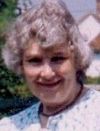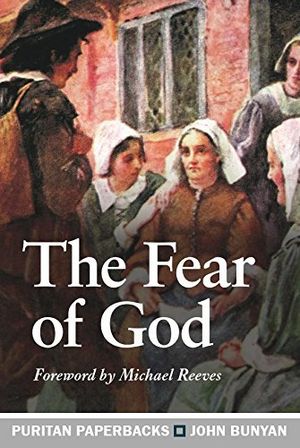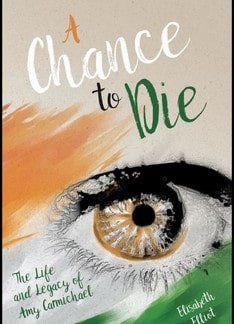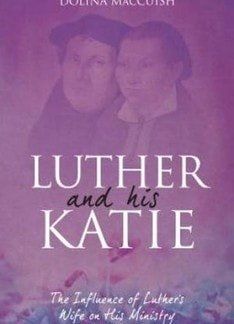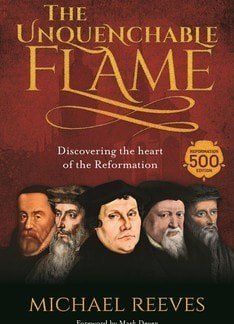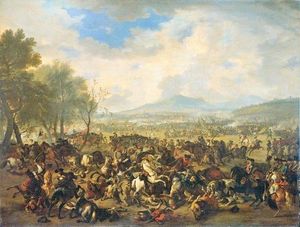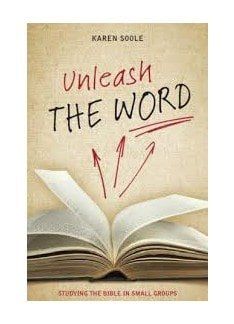For 80 long years, Courtenay Harris has carried the secret burden of a family tragedy which has shaped his entire life. It is a story he has found hard to share and yet one that magnifies the wonder of God’s providences in his life.
The story begins in late June 1934. A broken-hearted young Jewish woman is knocking at the door of an orphanage. Frieda Badrian carries in her arms her two-month-old baby, named Kurt.
The family is in growing danger and the child’s anxious parents are about to take an action that will change their baby’s life forever. A neatly uniformed Sister opens the door and Frieda quickly hands over her baby and turns tearfully away.
Frieda and her husband lived in Beuthen in Upper Silesia, on the German-Polish border. Little Kurt was born on 5 May 1934 and, as a Jewish family, they knew they were in peril.
In January 1933 Adolph Hitler had become Chancellor of Germany and in August 1934 would make himself Führer of all Germany. In the meantime, Hitler, known hater of the Jewish race, had been steadily consolidating his position of power.
Night of the long knives
Just one month after Kurt was born, the fearful event known as the ‘Night of the long knives’ had taken place. This was the night when 400 of Hitler’s known opponents had been murdered by the SS and Hitler had declared himself, not only president, but head of the army.
Anti-Semitism was growing apace. The threat for all Jews living on the German-Polish border was both terrifying and imminent. Fraught with anxiety, Kurt’s parents had decided they must at least try to save their baby’s life. There was no alternative but to surrender him to a Gentile orphanage. There at least he would be safe.
This was a Friedenshort orphanage, a name meaning ‘House of peace’, one of the many Gentile Christian orphanages carrying that name, which were founded by Eva von Tiele-Winkler.
From a wealthy home in Upper Silesia, Eva had a heart of compassion for the destitute and needy who lived in the vicinity of her castle home in the area. Converted at the age of 17, she threw herself into a life of service and mercy and, before her death, had established over 40 homes for orphans, widows and the homeless throughout Germany. And it was to a Friedenshort orphanage near their home that Kurt’s parents took him that June day in 1934.
Never again would the child see his natural parents, and many years later he learnt that in all probability they had perished in the gas chambers of Auschwitz.
Snatched from an uncertain future and possible fearful death, this baby boy was delivered, like the infant Moses, by a singular act of the providence of God. He was destined for a remarkable future of usefulness in his kingdom. Pictures are extant of a cheerful toddler at the Friedenshort orphanage, cared for with many other children by the devotion of Christian women.
But all was to change again by the time the child was five. At 4.45 in the morning of 1 September 1939, Hitler had begun a massive invasion of Poland, with an estimated 1.5 million German troops advancing all along the Polish-German border. At the same time, the Luftwaffe bombed the Polish airfields and the clang of German boots soon rang out along the streets.
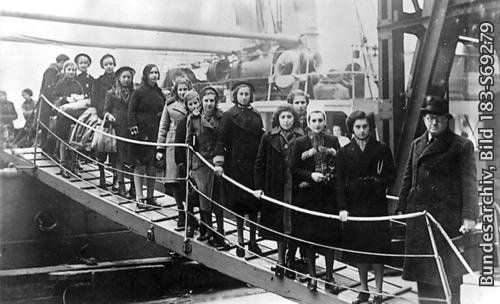
Kindertransport
There was little the small country could do, except to capitulate before such an advance. Britain immediately declared war on Germany. World War II had begun.
Once again young Kurt Badrian was in danger. The Friedenshort orphanage pre-eminently catered for Gentile children and this boy, together with three young girls, was Jewish. His presence in the home could put all the children in danger. What could be done?
The answer lay in a charity called Kindertransport (Children’s transport). This charity was organised after Kristallnacht (Night of broken glass),that fearful night of 9-10 November 1938 when Jewish properties and homes and businesses all over Germany were trashed, with shops lying in a ruin of broken glass.
Ninety-one Jewish people were killed in the attacks. Now no Jewish family was secure. Children under the age of 17 were to be transported to safer countries, by train, ship and air. The first Kindertransport children arrived in Harwich, Britain, on 2 December 1938, including some 200 from a Jewish orphanage in Berlin, which had been destroyed in the Kristallnacht.
With the worsening situation it became even more imperative to take Jewishchildren out of danger and Kindertransport continued to operate until the outbreak of war in September 1939. Altogether, over 10,000 children found shelter in Britain.
Young Kurt and the three girls from Friedenshort were among the last to make their escape, arriving in Harwich on 29 June 1939. Where were they to go from there? Many were taken to farms, hostels and other places of safety, but, best of all, private citizens welcomed the young refugees into their own homes.
Christian families
For Kurt and the girls, a kindly woman in North London offered a home to the four little strangers. Although a bewildering time for young Kurt, who could speak no English, he can still remember the effect this fine woman had on his life.
He did not know it at the time, but she was an earnest Christian and, looking back, he can say, ‘I can still well remember the impression she made on my life as one who walked with God in very close communion’. Here again, we see the astonishing provision of God in placing this Jewish child among Christians.
The next event in Kurt’s life was equally providential. His kind hostess could only foster the children temporarily, but she had friends in Norfolk, Charles and Lola Harris. Would they be able to help?
Without any family of their own, Charles and Lola were glad to offer a permanent home to Kurt and one of the girls from Friedenshort. Before long, the two travelled to Norfolk. As members of a Brethren assembly, this Christian couple took the children regularly to the morning meeting.
Moving shortly afterwards to Weston-super-Mare with Charles and Lola, the youngsters grew up in that pleasant coastal town, surrounded by Christian love and example.
They attended the Brethren meeting regularly, sitting under clear gospel ministry. And, in his early teens, Kurt found not only that he had been given loving foster parents, but that he was loved by the God of heaven and by his Son, the Lord Jesus Christ, who had paid the penalty of his sins.
Kurt Badrian, a young Jewish lad, rescued from the horrors of Nazi Germany, had been adopted by the grace of God into the family of heaven. Before long, Kurt was baptised as a believer at the Waterloo Hall Brethren Assembly.
Not long after this, another important change took place in Kurt’s life. Charles and Lola Harris had decided that the time had come to officially adopt the two children they had been fostering, since they were about five years of age. And with his adoption Kurt received a new name: he became Courtenay Bradley Harris, a name he has carried with honour ever since.
Marriage
By the age of 20, Courtenay had completed his national service in the army and it was about this time that he began a pen-pal correspondence with a young and beautiful Dutch Christian girl called Ali.
Ali was working in Britain at the time, and it was not long before they were able to meet. Clearly smitten, Courtenay was not one for wasting time, and in March 1956 the couple were married in Weston-super-Mare. And it has been a marriage that God has blessed.
With two sons and two daughters, Courtenay and Ali now have nine grandchildren and two great grandchildren. A little arithmetic also suggests that March 2016 sees the celebration of their diamond wedding!
With a heart full of gratitude to God for all his providence and mercy, Courtenay felt a call to become a preacher of the gospel. During his ministry he has undertaken the pastorate of three different churches: first at Winchcombe, Gloucestershire; then in Bedfordshire; and lastly in Droitwich, Worcestershire.
All through the years, he has faithfully proclaimed to others the glory of the God who so signally saved him from disaster in infancy, placing him in a family where he would hear the true message of the grace of God in Christ.
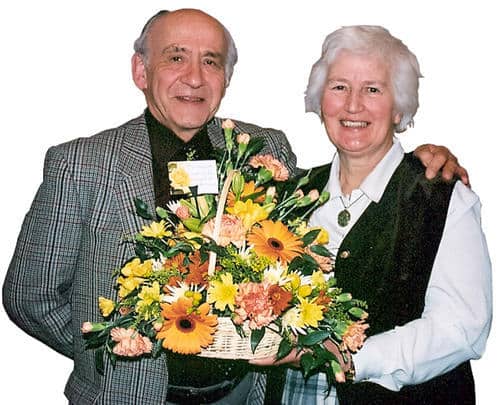
Auschwitz
As a stark reminder of the sorrows of the past, Courtenay visited Auschwitz in 1998, seeing and grieving as he discovered for himself the remnants of the horrors that his natural parents may well have known.
All he can say as he contemplates the past is summed up in the words of the hymn, ‘Why O Lord, such love to me?’
Nor was he forgetful of the mercies of God in protecting him at the Friedenshort orphanage. He and Ali also visited the retirement home of the Friedenshort Sisters, situated near Cologne, in Germany, and even met two of the Sisters, now over 90 years of age, who had cared for the infant Kurt, and who could never have imagined they would ever see him again.
In describing his experiences for this account, Courtenay Harris concludes movingly in the words of Robert M’Cheyne:
When I stand with Christ on high
Then Lord, shall I fully know,
Not till then, how much I owe.
Looking o’er life’s history
Faith Cook has written extensively in Christian biography, including books on Lady Jane Grey, John Bunyan, Selina Countess of Huntingdon, and William Grimshaw.


